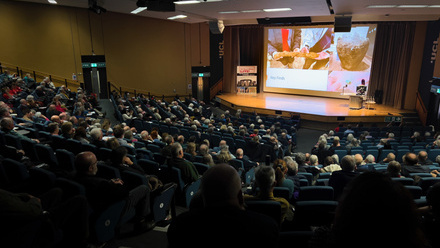Join Mercian Archaeological Services CIC in the beautiful Yorkshire Dales for this week-long training excavation, which focuses on the teaching of archaeological excavation methods.
As well as offering the very best in archaeological training and support, this training excavation is tailored towards enabling attendees to fulfil the requirements of the Archaeological Skills Passport.
The beautiful village of Bainbridge was formerly the administrative centre of the medieval Forest of Wensleydale, and the magnificent Bolton Castle near Leyburn dominates the valley to the east. A Roman fort looms large over the village of Bainbridge on the eastern side.
The site of the excavation is overlooked by a Late Bronze Age to Early Iron Age Slight Univallate Hillfort. This fort occupies the high ground at the top of a steep slope on the southern side of the site.
We will be concentrating our excavations on the possible medieval manorial complex to the north of this fort, which has been identified from earthworks and recently discovered pottery (see below).
The area is famous not only for its beautiful landscape, but also for its world-famous cheese, and as the backdrop to the television series ‘All Creatures Great and Small’.
Suitable for all levels from beginner to experienced digger.
For those wishing to develop their skills, for students and post-graduates seeking to fulfil the practical experience requirements of their courses… for those wishing to pursue a career in archaeology, or improve their knowledge to give them the edge at work… for those looking to acquire cross-transferable skills… for volunteer diggers wishing to raise their game, impress their friends, and increase their enjoyment of archaeology and heritage through a greater skill set and knowledge base…. through to people simply wishing to learn for the love of learning…
What you will learn
You will receive training and experience in many techniques of excavation, including many Core Skills listed in the Archaeological Skills Passport:
• Handtools (Trowel etc)
• Handtools (Spade, Mattock etc)
• Site Formation Processes
• Stratigraphic Excavation
• Context Sheet Recording
• Site Photography
• Dumpy Level and Staff
• Archaeological drawing
• Artifact Recovery, Recording & Storage
• Site Safety
All techniques are taught and experienced throughout the week, a mixture of theory sessions and hands-on training from our archaeological experts.
Every attendee will be taught to excavate.
Delegates will be taught archaeological drawing methods.
Delegates will also receive training and experience in measuring and recording heights with a dumpy level.
Topics covered in the classroom sessions will include site formation and processes, stratigraphic excavation, context sheets, drawing and photography, alongside a Pottery Identification Training seminar.
Lectures are accompanied by ‘hand-outs’. These will be made available to attendees to download via a file share. The details for access are provided before the field school. The files can be downloaded and are for students to keep. Mercian aims to be an environmentally friendly company and this helps us to work towards reducing our environmental footprint.
This course is suitable for people of all archaeological abilities from beginners wishing to take their first step, to experienced diggers wishing to take the next step, and from university students and post-graduates needing more experience, to retired people wanting to fulfil a life’s ambition. All are welcome and will be treated equally; the experience is tailored to the individual through hands-on personal supervision.
Field days include lunch (sandwiches) provided by caterers which will be eaten in our welfare area in the field.
On-site toilet facilities are provided.
All equipment is provided, although you are welcome to bring you own trowels etc (more details when you have booked).
Evening Field Visits
A tour around Brough Roman Fort, Bainbridge.
About the Site
The name Bainbridge comes from its location at the place where the “Cam High Road”, a Roman Road crossed the river Bain. To learn more about the Cam High Road see the webpage.
A Roman fort overlooked this crossing and a settlement grew around the fort named ‘Virosidum’.
The modern village is overlooked by the remains of this fort - ‘Bainbridge Roman fort and annex’, which is located on the eastern edge of Bainbridge.
Cost: £350 per person
Fieldwork hosted by Mercian Archaeological Services CIC



